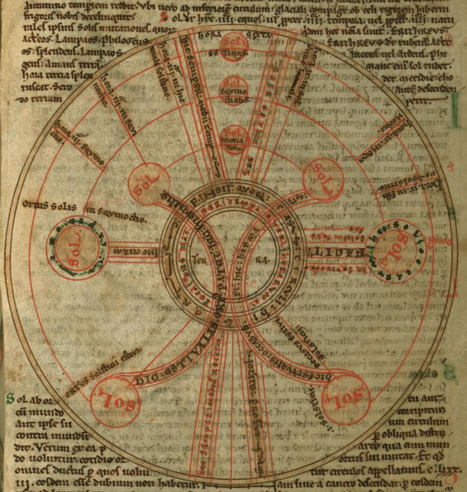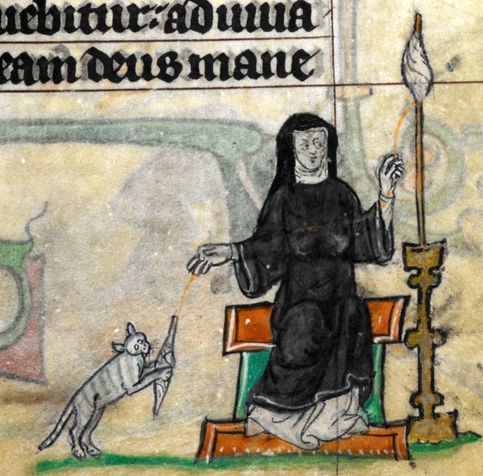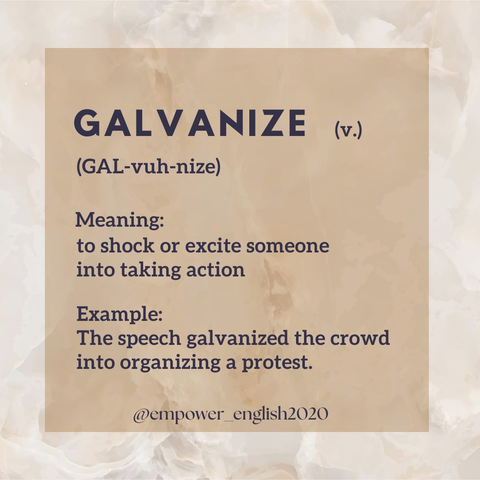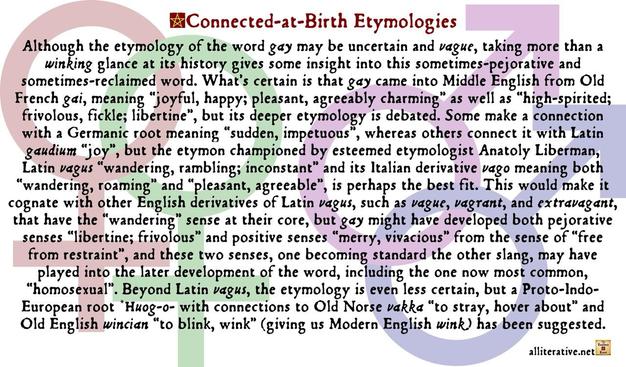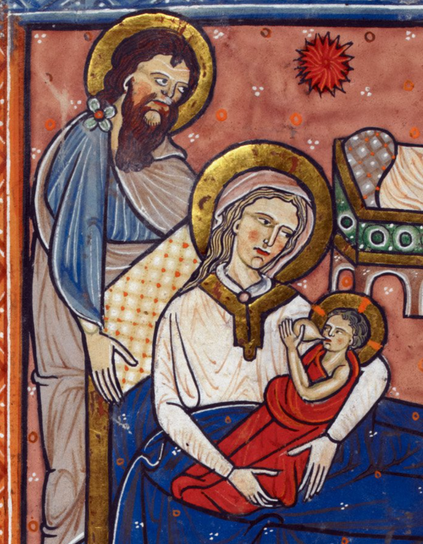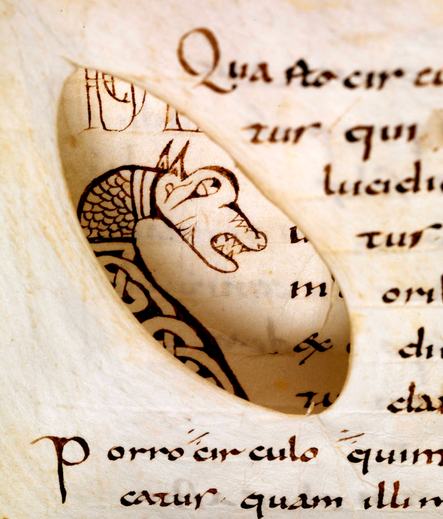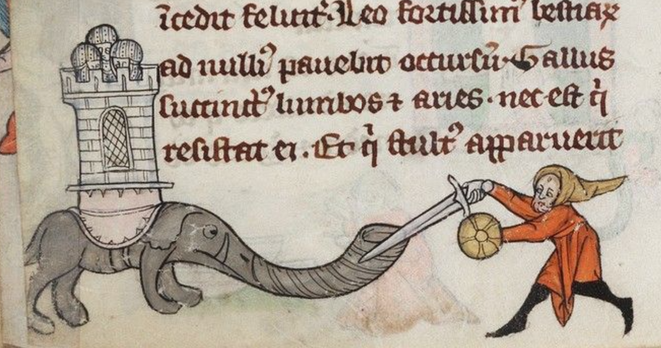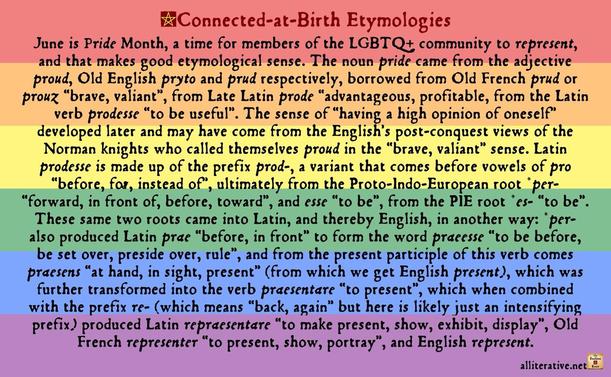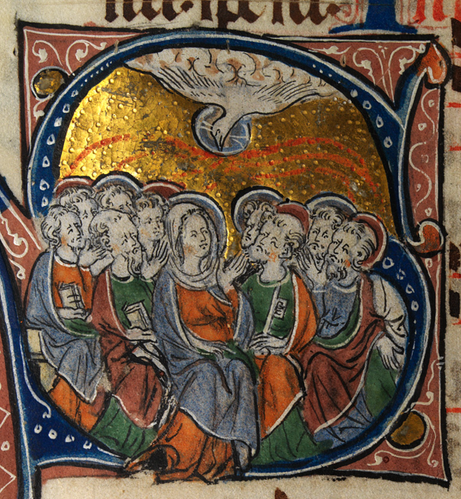sunn-stede, m.n: a solstice. (SUNN-STED-uh / ˈsʌn-ˌstɛ-də)
Image: Diagram of the solstices and equinoxes; England, late 12th century; Walters Art Museum, W.73.3R.
#OldEnglish #WOTD
#WOTD
cūða, m.n: one known, an acquaintance, a familiar friend, a relation. (KOO-tha / ˈkuː-θa)
#OldEnglish #WOTD
frēot, m.n: (legally sanctioned) freedom; condition of being free; grant of freedom, manumission. (FRAY-ot / ˈfreːɔt)
#OldEnglish #WOTD
un-getǣse, n.n: an inconvenience, a trouble. (UN-yeh-TAZZ-uh / ˈʌn-jɛ-ˌtæː-zə)
Image: Maastricht Hours; Netherlands, 1300-1325; British Library, Stowe MS 17.
#OldEnglish #WOTD
sēam-penig, m.n: a toll of a penny on a load (of salt). (SAY-ahm-PEN-ih / ˈseːam-ˌpɛ-nɪj)
#OldEnglish #WOTD
lassitude
The #ConnectedAtBirth #etymology of the week is GAY/VAGUE/WINK #wotd #gay #vague #wink #Pride #PrideMonth 🏳️🌈🏳️⚧️
in-dryhto, f.n: nobleness, honour, glory. (in-DRUE-h’toh / ɪn-ˈdryx-tɔ)
#OldEnglish #WOTD
Mot du jour : Carpodrome
https://www.carpiste.fr/environnement/liste-des-principaux-carpodromes-en-france/
fōstor-fæder, m.n: foster-father, guardian. (FO-stor-FAD-er / ˈfoː-stɔr-ˌfæ-dɛr)
Image: The Holy Family in a psalter; England, early 13th century; British Library, Royal MS 1 D X, f. 1v.
#OldEnglish #WOTD #FathersDay
stæf-wīs, adj: skilled in letters, literate. (STAFF-WEES / ˈstæf-ˌwiːs)
Image: De natura rerum; E France, 9th century; Bamberg, Staatsbibliothek, Msc.Nat.1, f. 41r.
#OldEnglish #WOTD
lēad-gedelf, n.n: lead mine or quarry. (LAY-odd-yeh-DELF / ˈleːad-jɛ-ˌdɛlf)
#OldEnglish #WOTD
þyrel, n.n: hole. (THUE-rell / ˈθy-rɛl)
Image: De natura rerum; E France, 9th century; Bamberg, Staatsbibliothek, Msc.Nat.1, f. 26v.
#OldEnglish #WOTD
wēsten, m.n: desert, wilderness. (WAY-sten / ˈweː-stɛn)
#OldEnglish #WOTD
lāð, adj: hostile, malign, bearing hate toward another. (LAWTH / ˈlaːθ)
Image: Rothschild Canticles; Flanders or the Rhineland, c. 1300; Beinecke Rare Book & Manuscript Library, MS 404, f. 168v.
#OldEnglish #WOTD
The #ConnectedAtBirth #etymology of the week is PRIDE/REPRESENT #wotd #pride #represent #PrideMonth #Pride2025 #pridemonth2025 🏳️🌈🏳️⚧️
rǣden, f.n: condition. (RAD-en / ˈræː-dɛn)
#OldEnglish #WOTD
hālga gāst, n: Holy Spirit. (HALL-ga GAHST / ˈhaːl-ga ˈgaːst)
Image: Sherbrooke Missal; England (East Anglia), 1310-1320; National Library of Wales, MS. 15536E.
#OldEnglish #WOTD
lǣwede, adj: lay, i.e. not learned, not of the church; by gradual change of meaning it became modern English ‘lewd’. (LAE-weh-duh / ˈlæː-wɛ-də)
#OldEnglish #WOTD
